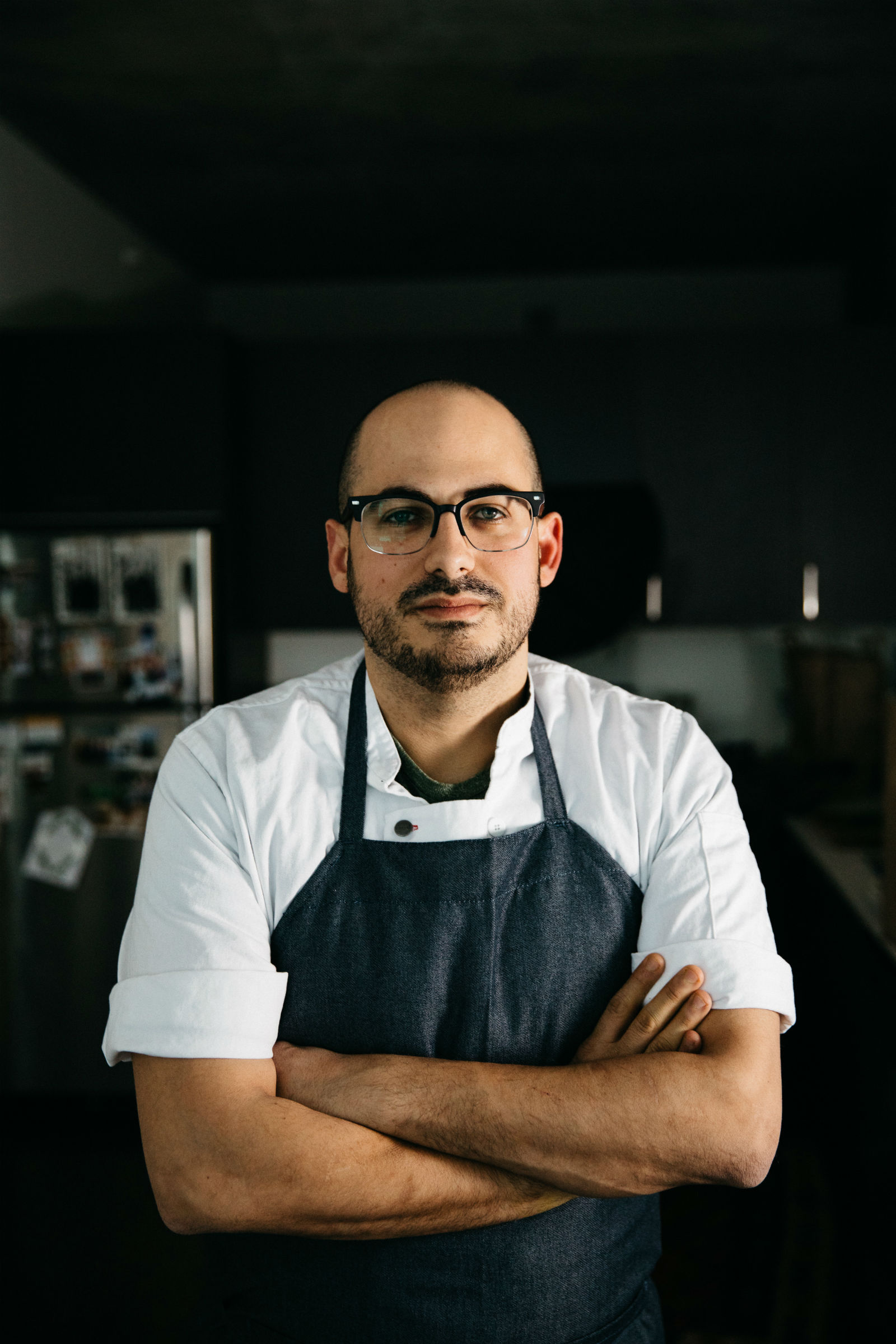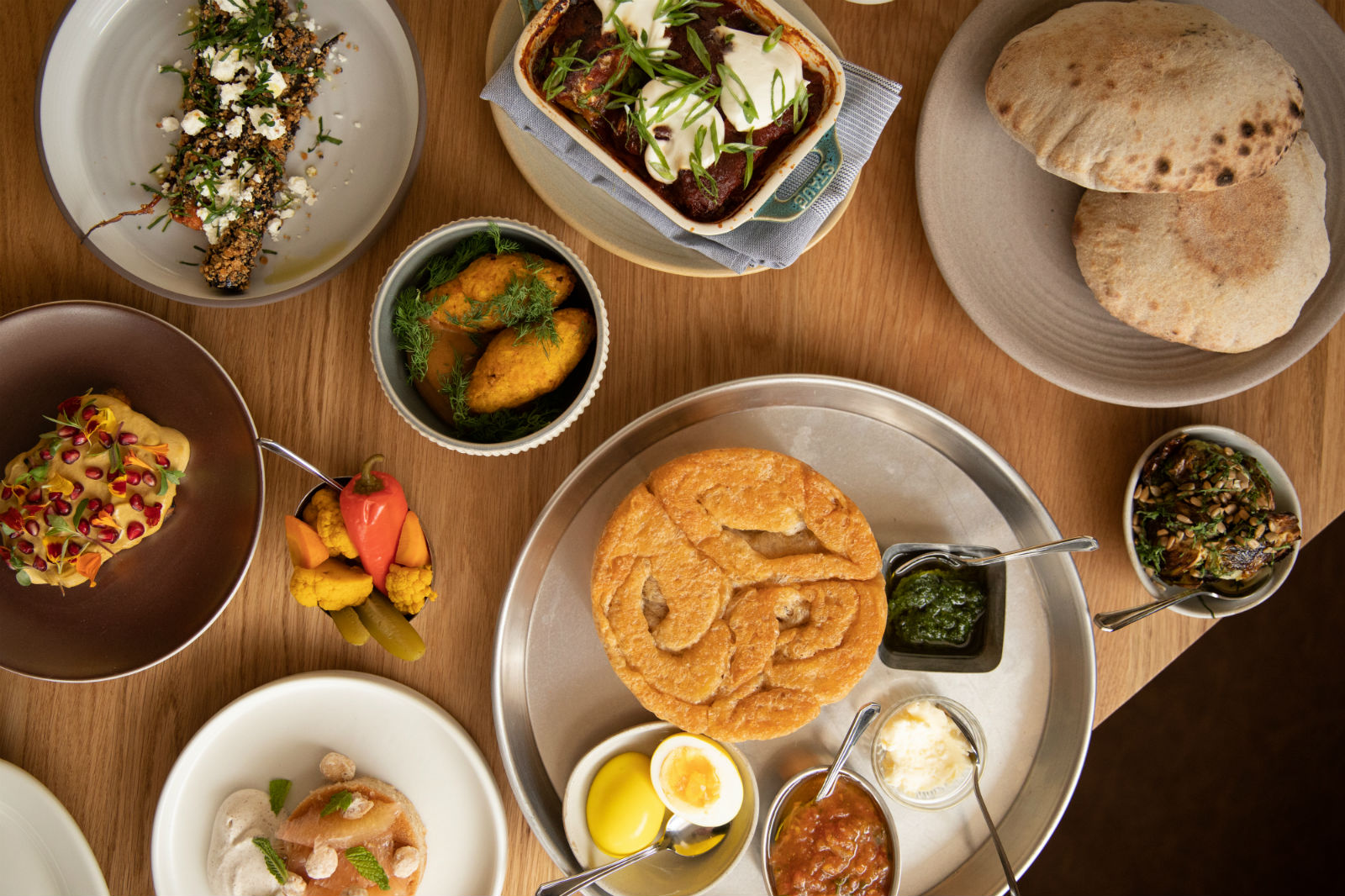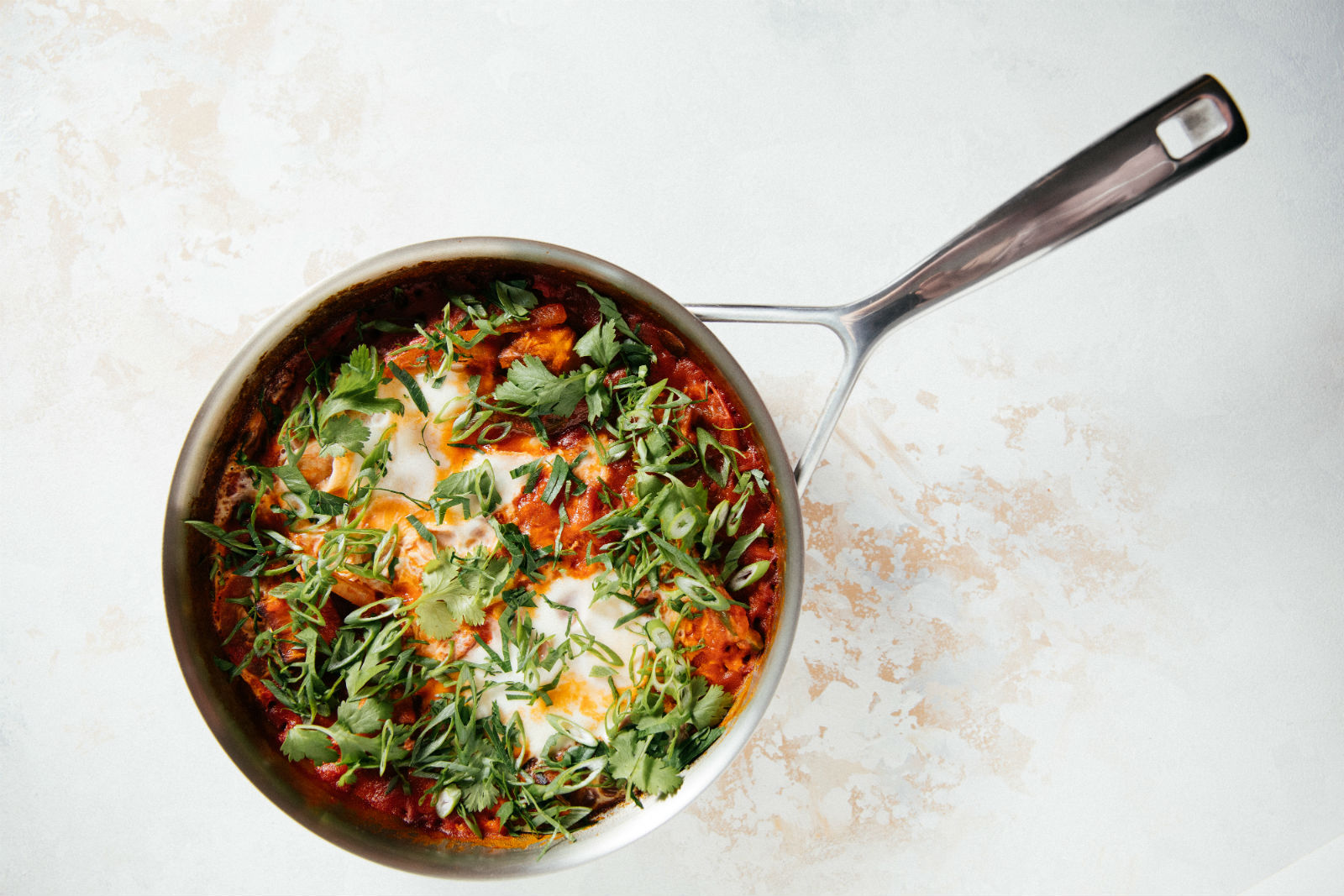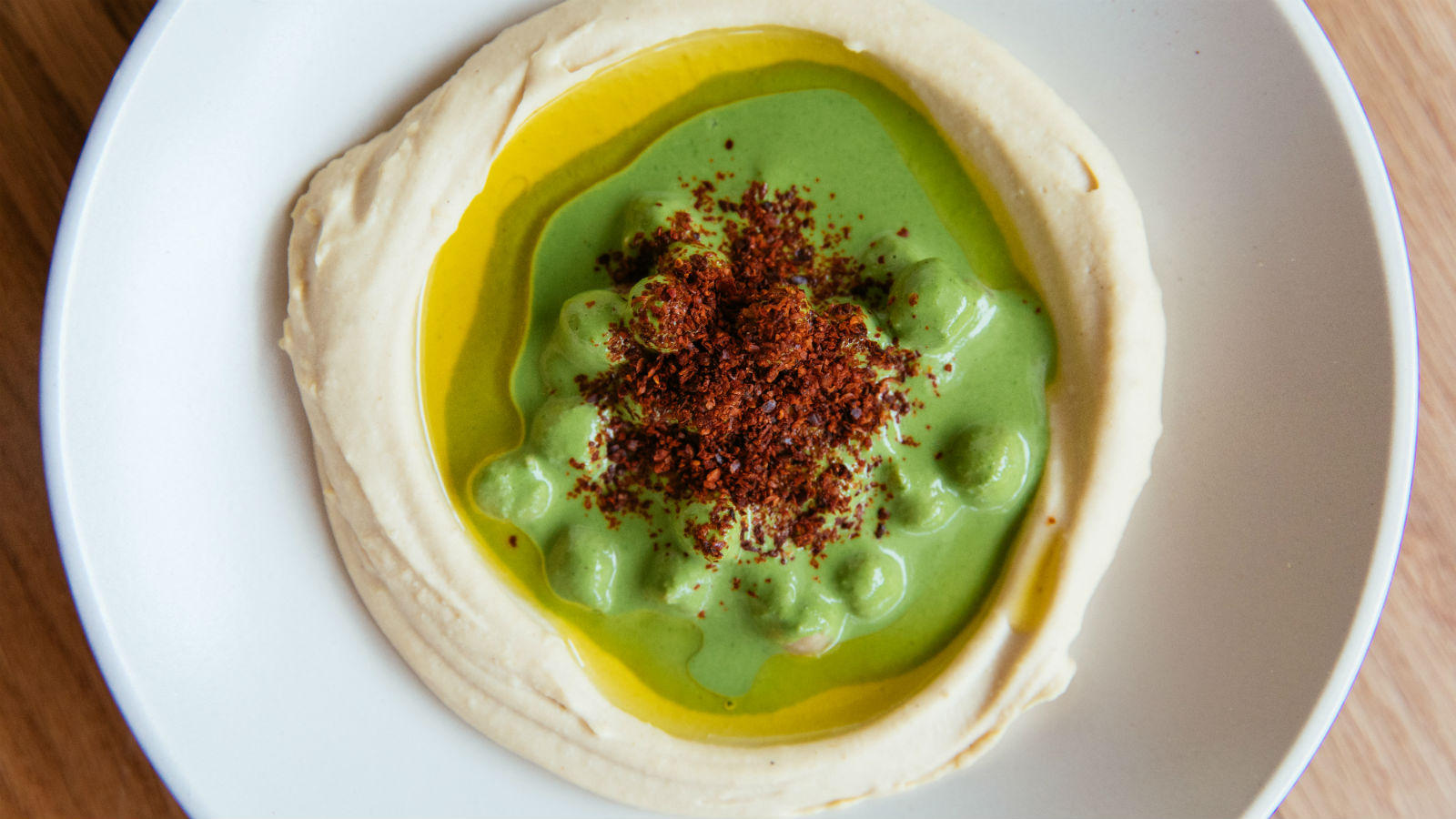After stints working for such acclaimed culinary stars as Alon Shaya and Michael Solomonov, 2017 James Beard Rising Star Chef Zach Engel has achieved his dream of opening his own restaurant with the newly opened Galit — a modern Israeli restaurant in Chicago’s Lincoln Park neighborhood.
Galit was one of the most anticipated restaurant openings of 2019, not just in Chicago, but nationwide. When someone with Engel’s resume strikes out on his own, restaurant critics and savvy diners pay close attention. So far, Galit — which means wave in Hebrew and is also the nickname for Engel’s young daughter — has lived up to the hype. Those diners lucky enough to score a table (including this writer) rave about the silky hummus, shatteringly crisp falafel, fluffy housemade pita, and charcoal-roasted meats.

Although Chicago has its share of Mediterranean and Middle Eastern restaurants — including CJ Jacobson’s Mediterranean but heavily Israeli-influenced duo Aba and Ema — until Galit opened its doors in early April, there was no self-described modern Israeli restaurant along the lines of Philadelphia’s Zahav, New Orleans’ Shaya, or New York’s Nur. And based on the frenzy around getting a table at Galit, Chicago diners were more than ready. Galit opens up reservations 60 days in advance and “prime time dining is pretty much booked up,” notes Engel. “If people want to get a table, they should come earlier or later.”
The Nosher celebrates the traditions and recipes that have brought Jews together for centuries. Donate today to keep The Nosher's stories and recipes accessible to all.
Like every other American chef cooking Israeli cuisine, Engel — who happens to be the son of a rabbi — has had to define what “Israeli cuisine” even means. For him, Israeli cuisine “is the foods eaten in Israel today — in restaurants [and] in people’s homes.” Galit’s menu reflects that by combining the foods that people expect to see when they travel to Israel — like shakshuka, hummus, falafel, and labneh — with foods that are more typically part of Israeli home cooking — such as the Yemenite Shabbat bread kubaneh — as well as Engel’s own interpretation of “traditional dishes that come from the Jewish diaspora and have emigrated to Israel in the last hundred years.”
This combination has resulted in a curated, eclectic menu with vegetables often taking center stage. Vegetable cookery offers a special satisfaction for Engel. “I enjoy taking a simple vegetable and adding things to it to match the flavors, adding texture to them and cooking them properly,” he says, citing beets with tahini and carrots with dukkah and feta as two examples. “There’s not a single dish on the menu that doesn’t have some vegetable component,” notes Engel. “And that is a lot of how the food is cooked [in Israel]. They have incredible markets and farms.”

Breads are also among the finest offering at Galit, especially the kubaneh, a dish that Engel learned from a Yemenite Jewish woman in Tel Aviv whom he calls his Israeli mother. Serving this kubaneh in his own restaurant has always been a dream for Engel: Kubaneh is made “unlike any other way people make bread,” he explains. “It’s a weird mixture of proofing and lamination that’s very atypical of what we’ve seen in North American bread-making, especially stuff that comes from French and Italian cooking. It’s super important and meaningful to have that on the opening menu and show it off,” says Engel. Introducing this type of ultra-traditional and specific dish from the Jewish diaspora to American diners is exactly what a modern Israeli restaurant should do — highlight techniques and foods that are a part of Sephardic and Mizrahi culinary tradition yet remain little-known in the States.
Another feature that stands out about Galit is the charcoal grill. Indeed, there is an entire section of the menu titled “Over Coal,” which is directly inspired by Engel’s time at Michael Solomonov’s restaurant Zahav. “A lot of stuff is cooked over charcoal at Zahav,” Engel points out. “I knew that when I opened a restaurant I had to find a space that I could do a charcoal hearth. [At Galit] we’re cooking a lot of stuff over charcoal on skewers, which is very traditional.”
Engel notes the number of prominent Israeli chefs who have made their way to New York and LA and opened successful restaurants. Israeli cuisine “is becoming a part of the American dining experience just like how Jewish American deli food is part of it. And now so many American Jews have been traveling to Israel, they crave [the food] and they want to cook it,” says Engel. Clearly many folks in Chicago are counting on Galit to scratch that itch.




